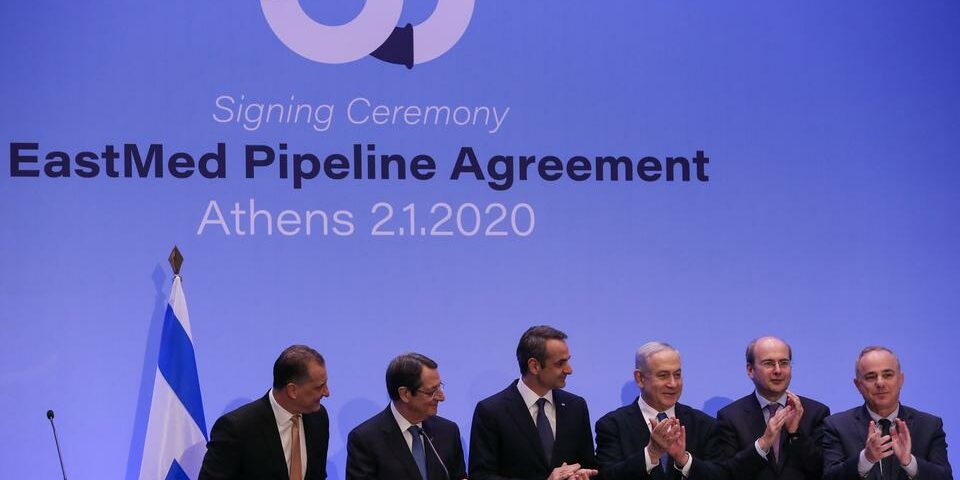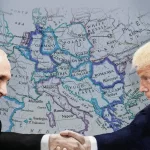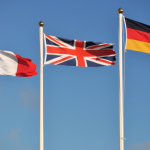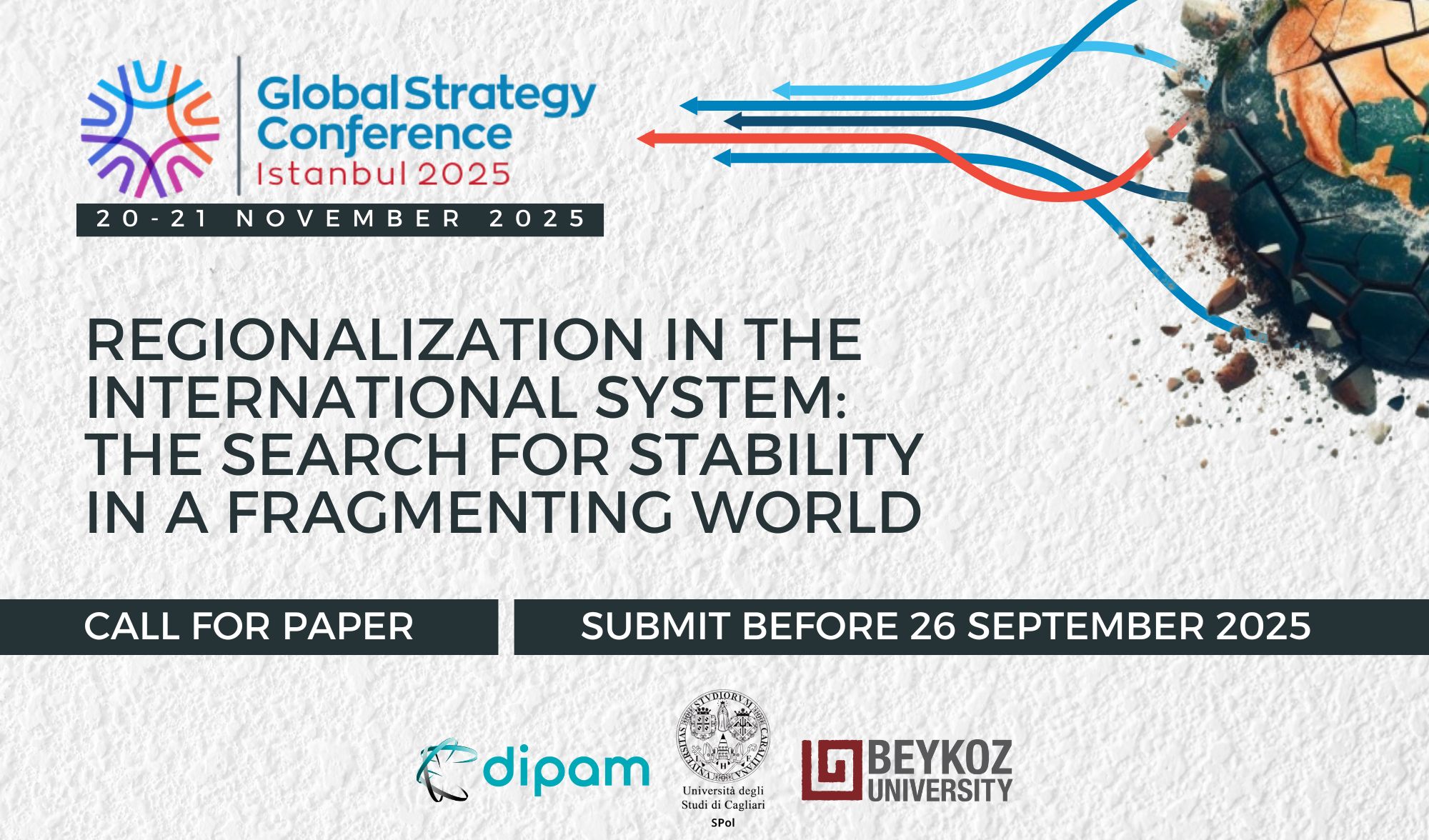He created the framework of the European Union’s Eastern Mediterranean policy, which tries to keep its policy within the framework of soft power on all other issues associated with it, especially a perspective drawn by Greece and the Greek Administration of Southern Cyprus. Many vital issues for the Union and its member states have been knotted at this point. Although it is a strategic choice for many of the EU member states to be NATO allies and leave the hard power element to this organization, it has given rise to the need for the EU to act within the framework of NATO, which wants to play a role in the region.
Looking at the framework of the eastern Mediterranean, Libya can be seen as Europe’s biggest challenge in the region. March decadence between the international community-recognised government of the National Accord, led by Abdulhamid Dibeybe and backed by Turkey, and General Khalifa Hafter, backed by Russia, the United Arab Emirates, Saudi Arabia, Egypt and once France, deepens the security gap in the region for Europe. Just across Europe, this power gap can be assessed in regional security, hydrocarbon deposits and irregular migration.
Conflicts in Libya has made the region a suitable backdrop for terrorism. In addition, the intervention of many foreign forces in the region has escalated competition in the region. This conflict not only fed instability in an area that had a direct impact on European interests in Libya, but also seeped into Europe itself in the Eastern Mediterranean. The competition deepened Europe’s intellectual divisions and made it difficult for the European Union and its member states to develop a harmonious policy in the Mediterranean. The fact that the Russians controlled all of eastern Libya, where most of the hydrocarbon reserves are located, and most of Fizan, the largest field in Libya, starting with the Sirte-Cufra line, with their support for Hafter’s forces in this conflict, should be considered, along with Libyan gas extracted by France and Italian ENI, which supported Hafter for some time. Due to its roads and regional location, the instability in Libya, a buffer between All Africa and Europe, has become a conduit for irregular migration from all of Africa, as well as decimations from the country. The dream of arriving on Italian soil via Libya and continuing their lives in EU countries affected Italian policies and actions, as well as caused decisiveness between the EU and member states.
Another problem for the EU is that Greece, a member of the Union, and the GCASC expect European institutions to intervene to defend their rights. Although the EU was involved in the problem from the framework drawn up by the Greek and Greek theses in the region, it did not want to take Turkey against it. The current situation in Cyprus was coupled with the need for energy potential in the region
In addition, increased interest in the region for different reasons from all over the world has also affected Europe’s approach. Besides the coastal countries, the Gulf and European countries, the United States, Russia and China have a presence in the region.
While all these tensions and unpredictability persist, and in itself, the G7 and NATO summits took place at an important turn. Although the summits did not offer a whole new world forecast, they did result in some signals for a renewed global strategy. As much has been focused on, from a regional point of view, China is the new strong competitor, and Russia has also been confirmed as a danger that should not be ignored, maintaining its power. Although no decision or action is envisaged on the eastern Mediterranean, can the re-consolidation of the Western alliance be effective in the region?
The fact that the NATO summit reaffirmed the decisions taken by the G7 in full integrity and unity showed that the Biden administration’s initiatives over NATO are beginning to bear fruit. Europe has moved a little further away from the strategic autonomy it had expected. In making NATO stronger militarily, the decision to take steps to strengthen its political side and ideas that pave the way for greater contribution to regional initiatives will also be instrumental in making NATO stronger in the Eastern Mediterranean, as in many regions.
The rarely used hard power elements that Europe has tried to base on its own assets to show that NATO is not needed with active policies in the region have not produced the expected results. Due to the indifference of the United States, the policies that Europe has based on migrants in Libya and Syria will evolve into regional security and, moreover, the cooperation needed to remove Russia from the region. Many channels, including a new process of cooperation with the UMH, can be used to reduce Russian influence, especially in Libya. The mandate of Irini, the EU naval mission tasked with enforcing the arms embargo, is expected to be extended to include control of the ceasefire, but the process may be abandoned to the NATO mission because the mission does not appear successful. Here, the mission to get Russia out of the region, which is a NATO priority, will also be carried out to ensure the security of hydrocarbon deposits vital to Europe and regions that can lead to the flow of All Africa to Europe. In addition, as a NATO country, it is clear that Turkey’s presence in the region will be evaluated specifically. In other words, in general, the strategic priorities of the EU and NATO in the region do not look the same.
It is not surprising that this period coincides with a decaying deceleration of tensions between Turkey and Greece, two NATO countries facing energy exploration activities in the eastern Mediterranean. It should be a strategic priority to ensure that Turkey, which has developed relations with Russia in the region, again increases its faith in NATO, and the first step will be taken in this region. Projects such as EastMed, which will reduce Russia’s dependence on meeting Europe’s energy needs, are supported, while at the same time, the absence of allies in the region will demonstrate NATO’s political mobility. We can soon see whether NATO will be a catalyst or act as a stakeholder in the solution of the tension between Turkey, Greece and the GCASC which the EU cannot decipher. This will negatively affect some Gulf states, which have benefited most from tensions in the region. However, reducing Turkey’s perception of danger in the region will also affect its relations with Russia.
China’s desire to acquire ports in the Eastern Mediterranean, an important transit zone for the New Silk Road initiative Belt Road Initiative (BRI), has been very effective in Greece, a member of the EU and NATO, and one of the most important ports in the region, such as Piraeus, has fallen into the hands of China. As a result, China’s infrastructure investments and commercial activities in Turkey and Greece are likely to be blocked in NATO’s new vision. The desire to block China within the Build Back Better World (b3w) project, adopted at the G7 as an alternative to BRI, holds question marks given how reluctant Europe is even to rescue/support its own activities. A deep impact on the strategic importance of the Eastern Mediterranean is not expected if the EU, which is seen as a good partner and Sunday for China, declines its relations with China within the framework of the new strategic vision.
The basic approach coming out of the G7 and NATO summits is likely to affect Europe’s policy in the region, as well as transform the region’s own internal dynamics. Both the Allied and the main threat States are stuck in a narrow zone, trying to determine policy and action. The footsteps of the conflict, which has been expected for some time but has not happened due to the maximum attention paid to ensure that tensions arising from the region’s unique structure do not move to the upper echelon, can be heard more clearly. But the controversial alignment of some of the policies that the states participating in the summits have committed to comply with with the separate foreign and security policies of the states will be the first competition to be encountered. While non-European policies on issues of EU priorities have the potential to stretch transatlantic relations, setting the global prospects of the Western alliance in the short and medium term will also reveal the area of action for the region.
This “Analysis” article was published in the July 2021 issue of C4Defence magazine.










